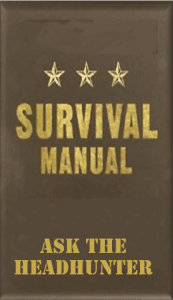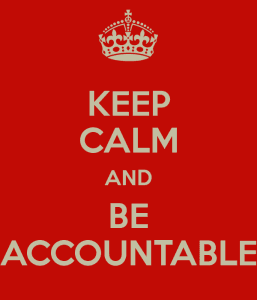In the May 3, 2016 Ask The Headhunter Newsletter, a wishful job seeker tries pandering to employers.
Question
I was reading your advice about when to bring up money in a job interview. The advice from outplacement firm Challenger Gray & Christmas here in Chicago is to never bring up compensation until an offer is made.
With the job market being more favorable to employers, they suggest that getting into the dialog too early can remove you from consideration quickly. While none of us wants to waste time going through the motions only to discover the salary may be too low, it may be more important to stay in the game as long as you can, getting them to like you. It gives you more of an opportunity to sell yourself, too.
When the salary question comes up too early in the discussion by the employer, they are not focusing on what you can bring to the table. So, when they ask you what you expect to earn, I was told to respond with, “This is a great company/organization, etc. I’m sure you’ll be fair.”
This throws the ball back in their court. If you stay in the game long enough, and they really like you, you could be offered something else or better.
Nick’s Reply
So Challenger Gray & Christmas told you to warily stroke the employer and say, “This is a great company or organization, etc. I’m sure you’ll be fair.” — hoping they’re going to like you and thus not abuse you. Pandering is not a negotiating strategy.
Why am I not surprised at the advice you were given? If your employer paid CG&C to help outplace you, consider that outplacement firms get paid whether you land a job or not. It’s unbelievable that any employer would hire a firm like this to spoon-feed pablum to the people it’s letting go.
The outplacement mistake
Let’s discuss outplacement for a minute. Here’s a cautionary note from Parting Company | How to leave your job, p. 30:
Outplacement might be helpful, but never forget that you are responsible for your next career step. Don’t be lulled into thinking that a high-priced consultant — who works for your former employer — has any real skin in your future. The skin is yours alone…
Outplacement might extend your unemployment, rather than help you land the right new job expeditiously. So, take ownership of your status, and maybe put some extra cash in your pocket. Here’s how.
Some employers will give you cash in lieu of outplacement services, if you ask. (You might have to sign a release to get it. Talk to your lawyer.) This might be the best deal, and it might help you get into high job-hunting gear faster. If you decide to spend that cash on assistance from an outplacement firm that has excellent references, that’s up to you — you’ll get to choose the firm and the counselor. If you use the money to tide you over while you conduct your own job search, that’s also up to you.
It helps to understand how the outplacement industry works. This is from Fearless Job Hunting, Book 3: Get in The Door (way ahead of your competition), pp. 12-13:
Big outplacement firms have a business model. Their objective is not to help you land a good job. The goal is to sell multi-million dollar counseling contracts to big employers that are downsizing. Almost by definition, your individual needs cannot be met by the packaged services these outplacement firms sell. If they really wanted to help you, they’d arrange personal introductions to managers who need you. They don’t do that, because that won’t win them a new gig. To win big contracts, these outplacement firms have to demonstrate a cookie-cutter process for handling thousands of newly-unemployed people. Their clients buy that process, and the more structured it looks, the more it appears to be worth… It’s too generic to work.
The last thing you need is a cookie-cutter approach to job hunting. If you want to stand out, you must make it personal. And that takes time, careful thought, and diligence. Every situation is unique, so these packaged methods you’ve been given aren’t going to work.
Outplacement that someone else chooses for you and pays for could be the biggest mistake you make when trying to land a new job after you get laid off.
Wishful thinking is not business
Let me explain why that lame, over-used response would reveal you to be naive and unsophisticated. It tells the employer that (1) you don’t know what you want or are worth, and that (2) you don’t know how to negotiate.
How businesslike is that?
Let’s say you were applying for a top sales position, and the VP of Sales asked how you’d respond to a prospective customer who asks, “How much do you want me to pay for what you’re selling?” Suppose you gave the CG&C response: “You’re a great company. I’m sure you’ll be fair.”
The VP would never hire you because you’re failing to negotiate by communicating the value of your product. You’re pretending the other guy will figure it out. If you worked for him, he’d fire you — and I’d compliment him.
Wishful thinking is not a sales strategy or a negotiating strategy. It’s childish, naive, and dangerous.
CG&C’s response is canned, silly, thoughtless and nothing but a sign that the applicant has no business in a job interview. Please: Don’t do it.
Negotiating is not a game of appeasement
Many job seekers are intimidated in interviews. And a common, visceral response to intimidation is to appease who frightens or intimidates you. Trying to be likeable is a childish form of appeasement.
 If you think trying to be likeable and saying “I’m sure you’ll be fair” will help you “stay in the game” longer, you’re going to lose because the employer will take advantage of the fact that you invested all that time — and correctly surmise that you’re going to take whatever they offer you. This is one of the oldest psychological tricks used in negotiating — look up cognitive dissonance. People have a tendency to rationalize and accept lousy job offers because they’ve spent so many hours in interviews.
If you think trying to be likeable and saying “I’m sure you’ll be fair” will help you “stay in the game” longer, you’re going to lose because the employer will take advantage of the fact that you invested all that time — and correctly surmise that you’re going to take whatever they offer you. This is one of the oldest psychological tricks used in negotiating — look up cognitive dissonance. People have a tendency to rationalize and accept lousy job offers because they’ve spent so many hours in interviews.
There’s another side to this. If you continue interviewing while knowing an offer is not likely to be in your acceptable ballpark, and then you try to “sell” the employer on a much higher salary, do you really think they’re not going to get upset with you for misleading them?
Don’t play games so you can “stay in the game,” because interviewing and hiring is not a game.
- Learn how to calculate what you’re worth, so that you’re prepared to ask for a compensation range you can defend. That demonstrates you know what you want. (See How much money should I ask for?)
- Learn how to ask the salary range of a position before you invest in interviews — that’s how to establish your negotiating position. It also shows the employer you’re not counting on being likeable; you’re prepared to demonstrate your value and to justify what you’re asking for. (See Ask this question before you agree to an interview. Yes, CG&C is so wrong that you should explicitly talk about money even before going to a job interview!)
You’re not a puppy. You don’t need to be meek and likeable so an employer might throw you a bone. I think Challenger Gray & Christmas are wasting your time and that of the employers you’re talking to — not to mention wasting your old employer’s money.
Do employers intimidate you in job interviews? Are you ready to state what you want? Do you ask what the employer is ready to pay? Have you used outplacement services? How did it work out?
: :


 I want to make a big career change into medical device sales, but it’s going to be tricky. My experience is in teaching, primarily English as a second language. I don’t expect to get a sales job to start, so I want to start out in sales support. I’ve done tons of research on the company I’ve chosen, its technology and products, and I’ve even talked to some of the company’s customers — doctors and medical centers. I know that their salespeople’s time is worth a little over $1,000 an hour, so good sales support is key to profitability.
I want to make a big career change into medical device sales, but it’s going to be tricky. My experience is in teaching, primarily English as a second language. I don’t expect to get a sales job to start, so I want to start out in sales support. I’ve done tons of research on the company I’ve chosen, its technology and products, and I’ve even talked to some of the company’s customers — doctors and medical centers. I know that their salespeople’s time is worth a little over $1,000 an hour, so good sales support is key to profitability.

 If I get this job — and even with help it’s still a big IF, — it will be my last job. The salary and perks will get me through my last 20 years before retirement, and a few years in, I can even move anywhere I like in the world and work remotely. Sweet.
If I get this job — and even with help it’s still a big IF, — it will be my last job. The salary and perks will get me through my last 20 years before retirement, and a few years in, I can even move anywhere I like in the world and work remotely. Sweet. I just sent one, after talking to the top dog. I repeated that I am interested in the position and told him of my immediate schedule. More importantly, and motivated by your columns, I told him about some activity of a standards committee that might have a strategic impact on his operations. I said I would be joining the committee, ex officio, by contributing some research I was doing, and I also told him what my input would be if I were working for him.
I just sent one, after talking to the top dog. I repeated that I am interested in the position and told him of my immediate schedule. More importantly, and motivated by your columns, I told him about some activity of a standards committee that might have a strategic impact on his operations. I said I would be joining the committee, ex officio, by contributing some research I was doing, and I also told him what my input would be if I were working for him.








